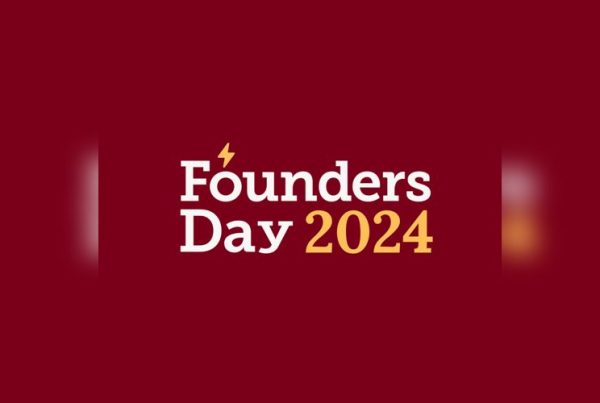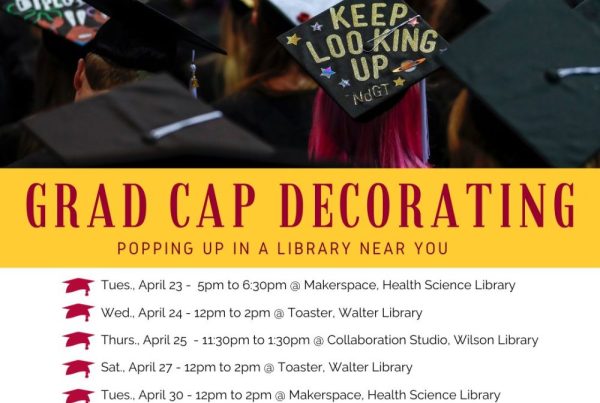By Allison Campbell-Jensen
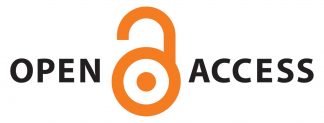 Open access to scholarly works can be defined as “making your work freely available — free to read and also free to be re-used by others,” says Allison Langham-Putrow, Scholarly Communications and Engineering Librarian. Yet she estimates that less than half of scholarly materials are available as open access.
Open access to scholarly works can be defined as “making your work freely available — free to read and also free to be re-used by others,” says Allison Langham-Putrow, Scholarly Communications and Engineering Librarian. Yet she estimates that less than half of scholarly materials are available as open access.
One of the reasons people advocate for open access publishing is the idea that the article will receive more citations — and thus the author will be able to show a greater scholarly impact. Langham-Putrow, Caitlin Bakker, Research Services Liaison, and Amy Riegelman, Social Sciences Librarian, decided to investigate whether the evidence supported this idea.
Behind open access
 Open access can be appealing because it allows all those who need access to have access, which is not something possible in a subscription-based system. Even a large research institution like the University of Minnesota cannot afford to maintain the increasing costs of subscriptions to all journals, and the existing models are complex.
Open access can be appealing because it allows all those who need access to have access, which is not something possible in a subscription-based system. Even a large research institution like the University of Minnesota cannot afford to maintain the increasing costs of subscriptions to all journals, and the existing models are complex.
“There are many mechanisms by which people make work available and many business models that support that, ” Bakker says. “So it’s not one thing; it’s a range of different ways that people make their work broadly available so it’s not tied up in subscription-based journals.”
Says Riegelman: “Universities are still in the middle of a pretty awkward transition from the print world of scholarly literature to online. I think we’re going through some growing pains.” Online publishing created the possibility for sharing of research openly, to anyone with an internet connection. But the transition from subscriptions to print journals to open access publishing, she says, isn’t happening as quickly as hoped. “It’s just odd that things are not freely available, and they’re tied to these for-profit publishers.”
Advantages of open access
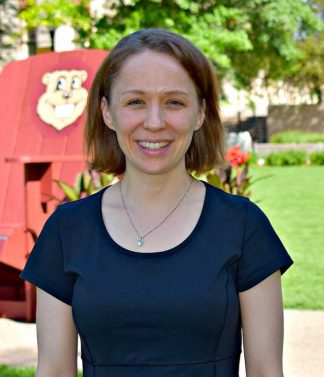
Allison Langham-Putrow
There are many reasons for researchers to make work openly available, beyond the possibility of gaining more citations. Open access helps not only scholars but also practitioners like teachers who want to keep up-to-date on effective teaching methods and doctors who want to know about the newest or best treatments.
Ideally, open access provides evidence-based information to practitioners and even policymakers. Yet these users would be unlikely to publish and so would not be citing the research, Langham-Putrow points out. One can also make the case that research, particularly that paid for with public funding, should be a public good.
Is there a citation advantage?
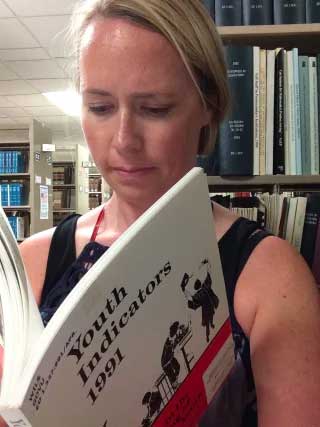
Amy Riegelman
To study the issue of whether there is a citation advantage, the team decided to systematically review and meta-analyze hundreds of articles on the topic. Riegelman noted that whether or not there is a citation advantage for open access publishing has been studied numerous times with a variety of differing results so “instead of having to send [scholars] hundreds of studies,” Riegelman says, “we’ll be doing that synthesis work to be able to provide them with the resources to make an evidence-based decision.”
The team agrees that it seems there may be a slight citation advantage for open access materials — but it can vary significantly between disciplines.
“We have started to extract all the data from the different studies, and if you treat all the studies as one giant study, there is a slight advantage for open access, in terms of the number of citations,” Bakker says. “But we are also seeing they are very different in the disciplines they cover and the sources of data and the methods that they use. So, it becomes challenging to pool them because everyone is doing things their own way.”
“We’re also looking at the methodological quality of the studies — not only what they found and what they report but also how rigorous their methods were, how consistently they were recorded,” Bakker says. “So maybe we can make some statements about areas for potential improvement and areas of strength in this sort of research.”
Award-winning work
The team won the Best Research Paper award at the recent annual Medical Library Association meeting. The award acknowledges “work exemplifying valid research relevant to health sciences information, libraries, or librarianship.” They will be updating the research and refining their findings as they prepare for publication — open access publication, of course.


